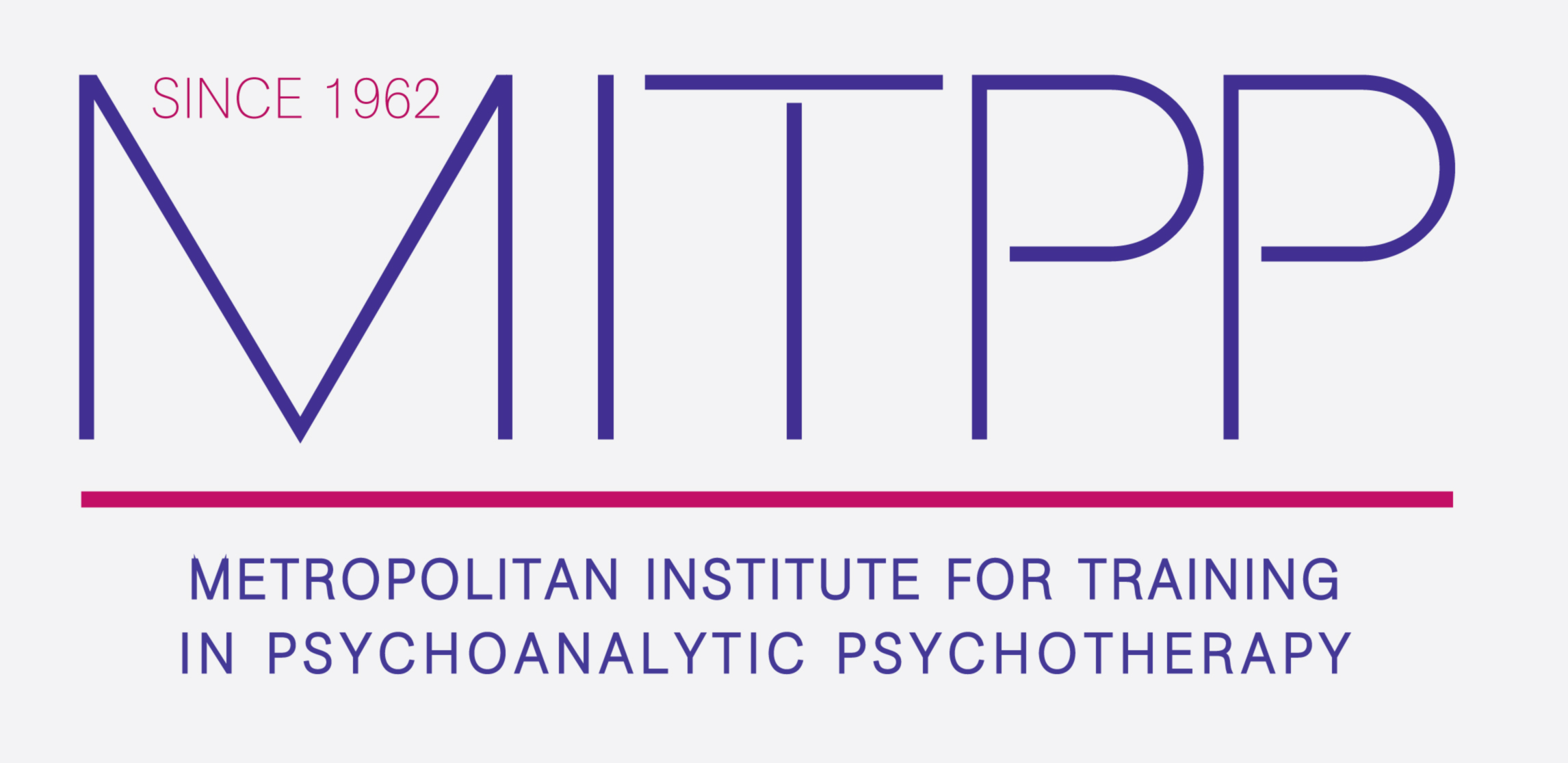CLINICAL TRAINING
CHILD AND ADOLESCENT PSYCHOANALYTIC
PSYCHOTHERAPY
PROGRAM OPTIONS
MITPP offers a two-year Certificate Program in specialized Clinical Training in Child and Adolescent Psychotherapy to qualified candidates in the mental health professions. The program is designed for those who are or would like to be working with children and adolescents. It consists of two (2) courses per semester, weekly individual and group supervision, and five (5) clinical hours per week, one of which may be a collateral session.
Non-matriculants take courses only. They select from any offered in the first year sequence, for which full credit will be given when the candidate matriculates.
LCSW LICENSURE OPPORTUNITY:
EARN AND LEARN
The Metropolitan Institute for Training in Psychoanalytic Psychotherapy, in conjunction with The Metropolitan Center for Mental Health, an Office of Mental Health (OMH) licensed clinic, offers social workers the opportunity to be paid for clinical hours while working toward LCSW licensure and a Certificate in Psychoanalytic Psychotherapy. Work a minimum of 14 clinical hours weekly to qualify for the LCSW in three years and be paid if you’re carrying 10 hours or more. Social workers who are unable to work 14 hours have the additional option of working a minimum of 10 unpaid clinical hours to qualify for the LCSW in six years. After completing MITPP's two-year Clinical Training in Child and Adolescent Psychotherapy Program, clinicians would continue in individual and group supervision and take a minimum of one course per semester in the Adult Program until they have accrued the necessary hours for the LCSW.
PROGRAM STATUS
A candidate may change from one status to another with the permission of the Director and any variations in the course of study are subject to the approval of the Director.
ADMISSION REQUIREMENTS
In order to matriculate, an applicant must be certified or licensed in psychology, social work, psychiatry or psychiatric nursing, or working toward such credentials. Counselors and others who hold a Master’s degree can qualify as licensed psychoanalysts under NY State licensure laws while working toward a certificate in Psychoanalytic Psychotherapy. Other applicants will be evaluated on an individual basis.
REQUIREMENTS FOR THE CERTIFICATE IN
CHILD AND ADOLESCENT PSYCHOTHERAPY
• Successful completion of all coursework.
• 440 hours of supervised clinical practice with patients of the Metropolitan Center for Mental Health.
• A minimum of 80 hours of individual supervision: 40 hours each with two different supervisors.
• A minimum of 90 hours of group supervision.
• A minimum of 100 hours of personal psychoanalytic psychotherapy on at least a once weekly basis.
• In good standing with MITPP and MCMH.
INDIVIDUAL AND GROUP SUPERVISION
Supervision can be a major additional expense beyond tuition. At MITPP, outstanding supervision is offered as part of an all-inclusive
tuition package with no additional fees for individual or group supervision.
Candidates select an individual supervisor from the list of MITPP Supervisors. Supervision is held in the supervisor's office and is arranged between candidate and supervisor at a mutually convenient time. A course of individual supervision consists of forty (40) weeks per year. Two (2) consecutive courses of supervision are required with two (2) different supervisors. Candidates may opt to take a second, simultaneous supervision with an MITPP supervisor at a very reduced rate.
Candidates are required to attend weekly group supervision. Group supervision is held throughout the year on-site at MCMH and is offered on a number of different days and at various times.
PERSONAL PSYCHOANALYTIC PSYCHOTHERAPY
Personal psychoanalytic psychotherapy or psychoanalysis is required during training and is the medium for attaining a deeper and more personal understanding of the theoretical and clinical issues under study.
Therapy/analysis must be at a minimum of once a week. If a candidate is in treatment at the time of application, approval of the therapist/analyst as a training therapist/analyst must be obtained from the Director. A therapist/analyst who is a graduate of a chartered training institute with a psychoanalytic orientation and has proven experience in psychoanalytic practice would, in general, meet the criteria for approval. Fees for personal psychotherapy/psychoanalysis are arranged privately between candidate and psychotherapist/psychoanalyst. Candidates not in treatment at the time of application may request to be referred to a therapist/analyst. The Director will make every effort to assist the candidate in locating a well-qualified therapist/analyst whose fees are affordable.
CLINICAL PRACTICE AT THE
METROPOLITAN CENTER FOR MENTAL HEALTH (MCMH)
Candidates see clinic patients at MCMH, a separate entity with which MITPP is associated. All decisions on treatment, patient assignments, or use of space at MCMH are in the sole discretion of MCMH’s Director of Clinical Services or his or her designee. Further information is contained in the Policies and Procedures Manual of MCMH.
The range of patients’ problems at MCMH may include but are not limited to depression, anxiety, substance abuse, borderline conditions, pathological narcissism, schizophrenia, bipolar disorders, and character pathology. MCMH has a team of psychiatrists, a 24-hour answering service for emergencies, a Medical Director, and full-time Administrative and Clinical Directors. Support is always available to candidates treating MCMH patients.
Candidates can fit their clinical work into their schedules, as MCMH is open weekdays from 9:00 AM to 10:00 PM, and Saturdays from 9:00 AM to 7:00 PM. MCMH’s main office is located on the Upper West Side at 160 West 86th Street, between Amsterdam and Columbus Avenues. A second location is at 336 Central Park West, at 94th Street; a third location is at 1090 St. Nicholas Avenue in Washington Heights, which includes a substance abuse program in addition to all of the current MCMH programs. All sites are convenient to public transportation.
COURSES
Courses are held in instructors’ private offices on Mondays from 6:25 PM to 7:55 PM and from 8:35 PM to 10:05 PM.* There are two (2) semesters per year, Fall and Spring, each consisting of fifteen (15) weeks of classes. The course of study may be completed in three (3) years. Most candidates train on a part-time basis and extend their training over a longer period. All courses are taught with an emphasis on clinical relevance. Small classes allow for individual attention. All courses are 15 weeks and have been approved for 22.5 contact hours (CEUs).
*Courses will be offered based on adequate candidate enrollment.
FIRST YEAR - FALL
Introduction to Technique with Children and Adolescents
The beginning of the course will be devoted to the cultural context of psychoanalytic psychotherapy and will aim to sensitize clinicians to different populations. The balance of the course will introduce several aspects of child therapy with the purpose of imparting an overview of the issues required to begin to treat children therapeutically. Topics include the child vs. the adult patient, the function of play in children’s lives and in therapy, assessment, interpersonal/intrapsychic approaches to treatment, and work with parents. Candidates will present assessments of their own cases toward the end of the semester.
Psychoanalytic Theories of Development I
This course offers an overview of the beginning psychological development of the human infant from a psychoanalytic perspective. Early development will be considered from the vantage point of psychosexual stages and of drive and ego development in the oral and anal phases and from the standpoint of Attachment Theory. The development of object relations and the emerging sense of self will be addressed. The contributions from infant research will be covered. Readings will include Freud, Anna Freud, Melanie Klein, Spitz, Winnicott, Mahler, Pine, and Kohut. Candidates will have the opportunity to think about clinical material from various theoretical perspectives.
FIRST YEAR - SPRING
Advanced Technique with Children and Adolescents
This course will examine selected topics in child and adolescent therapy, such as working with structured games, aggression, timidity, and children’s requests for need gratification from the therapist. Emphasis will be placed on understanding transference, countertransference, dreams, and play as well as on finding answers to technical dilemmas. Exploration will proceed through readings of clinical papers of classical and contemporary analysts in addition to candidates’ presentation of case material.
Psychoanalytic Theories of Development II
This course continues an exploration of Freud’s basic stage theory and its ramifications for normal and psychopathological character structure. There will be emphasis on the Oedipus complex as the nucleus of neurotic conflict. The writings of Freud, as well as the writings of more contemporary theorists will be studied. This will include readings and discussions of gender and sexuality, including contemporary theories of femininity, female sexuality, and homosexual and lesbian perspectives.
Prerequisite: Psychoanalytic Theories of Development I or with permission from the Director of MITPP.
SECOND YEAR - FALL
Theory of Child Psychopathology
Theories of pathology in the pre-Oedipal through latency phases will be examined in the context of development, with reference to drive, object relations, and ego development. Beginning with principles of assessment, clinical entities will be studied in terms of manifest symptoms, latent meaning and structure. Candidates will have the opportunity to present clinical vignettes to illustrate the assessment process and aspects of pathology. Readings will include Anna Freud, Bornstein, Pine, Winnicott, and others. Prerequisite: Completion of all First Year courses or with permission from the Director of MITPP.
Technique with the More Disturbed Child
This course starts with the assessment and diagnosis of the pathology of childhood and then considers the therapeutic action of play and techniques of child therapy with more disturbed children. Technical interventions that we use with all children, i.e., clarification, interpretation, and working through, are explored along with modifications of technique that are necessary with some children. Clinical examples are used to illustrate the principles under consideration. The treatment of specific disorders and levels of personality organization that are covered include: character pathology, ego deficits, borderline, narcissistic and psychotic states, and Post-Traumatic Stress Syndrome. Prerequisite: Completion of all First Year courses or with permission from the Director of MITPP.
SECOND YEAR - SPRING
Theory of Adolescent Psychopathology
Adolescence is a developmental phase with discriminable subphases. Urgent tasks, functions, and specific conflicts with typical “normal” and psychopathological resolutions can be identified as the phase unfolds. The theoretical contributions of A. Freud, Mahler, and Blos (and others) will provide a context for the study of adolescence and such issues as sexual identity and identity formation, the ego-ideal and moral systems, “object removal,” normality, and pathology in this apparently structurally fluid stage. Implications for treatment with expectable transference and countertransference structures, treatment alliance, and use of the therapist as a “new” object will be amplified by using clinical material and/or related readings.
Prerequisite: Completion of First Year courses or with permission from the Director of MITPP.
Technique with the More Disturbed Adolescent
This course focuses on theories, principles, and strategies of technique especially as they arise from phase-specific issues and conflicts in the adolescent. Difficulties in diagnosing and treating the adolescent who is concrete, narcissistically removed, and/or borderline or psychotic will be addressed. The issues of identity and character will be examined from the perspectives of intrapsychic dynamics (related to drive and defense) and as object-related solutions to unconscious familial necessities. Modifications of standard techniques, the inclusion of psychiatric and other team members and the involvement of family members will be considered as part of the therapist’s repertoire. Selected adolescent constellations such as anorexia/bulimia, the addictions, depressions, and sexual and social dysfunction will be studied according to the needs of the candidates and to the cases available to them.
Prerequisite: Completion of First Year courses or with permission from the Director of MITPP.

